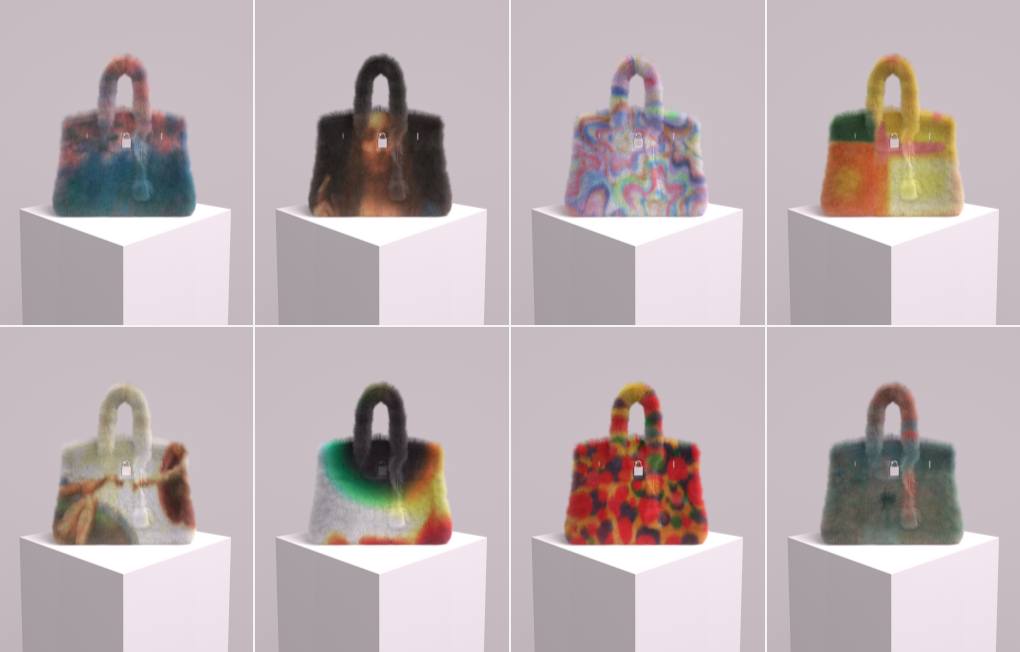
In a follow up to a ruling that may stand as a benchmark for the world of digital collectibles, a federal judge in the Southern District of New York has permanently blocked Mason Rothschild and his associates from minting or selling MetaBirkin NFTs, thus granting the request of Hermès and supporting the jury’s unanimous decision that was made back in February.
The opinion from U.S. District Judge Jed Rakoff likely marks the end of the year-and-a-half-long legal battle between the French luxury brand and the digital artist, whose real name is Sonny Estival. Rakoff also dismissed Rothschild’s request for a retrial.
Back during the NFT boom of 2021, Rothschild minted a series of 100 MetaBirkin NFTs, materially diverse and brightly-colored versions of their physical counterparts that rapidly gained traction online. The collection generated more than $1 million in sales on secondary marketplaces, with Rothschild receiving 7.5 percent in royalties.
In early 2022, Hermès sued Rothschild for damages and asked for an injunction to be placed on the NFTs, stating that the “MetaBirkins brand simply rips off Hermès’s famous Birkin trademark.” In response, Rothschild claimed his NFTs were a playful abstraction and a critique of the world of high fashion, writing in a public statement that “the First Amendment gives me the right to make and sell art that depicts Birkin bags”.
The New York jury disagreed with Rothschild and awarded Hermès $133,000 in damages. This was significant because, as Rakoff noted in his opinion, if the jury had found even a modest semblance of artistic expression in Rothschild’s work, he would have been entitled to First Amendment protection. Instead, “Hermès proved that Rothschild intentionally misled consumers into believing that Hermès was backing its products,” Rakoff wrote. “In effect, the jury found that Rothschild was simply a swindler.”
The latest decision was a response Hermès’s request in March to block Rothschild from promoting and profiting from his MetaBirkin NFTs, which Hermès claimed he had continued to do after February’s verdict. It did not, however, grant a request to transfer the smart contract from Rothschild to Hermès, which would have allowed the brand to alter the digital file to which the MetaBirkins NFTs are linked.
Even though the NFT market has cooled significantly from the heady days of 2021, the ruling offers solid legal ground for major brands considering launching collectable digital assets. It shows trademark rights in the physical world can be extended to virtual ones, said Jessica Neer McDonald, a copyright and trademark specialist at Neer McD PLLC.
“This signals to companies without virtual goods or services that they too may also be able to assert their trademark rights in virtual worlds,” Neer McDonald told Artnet News. “This is consistent with trends we are seeing in the United States Patent and Trademark Office.”
Neither Hermès nor Rothschild responded to requests for comment.
More Trending Stories:
The Venice Biennale Has Announced the Highly Anticipated Curatorial Theme of Its 2024 Art Exhibition